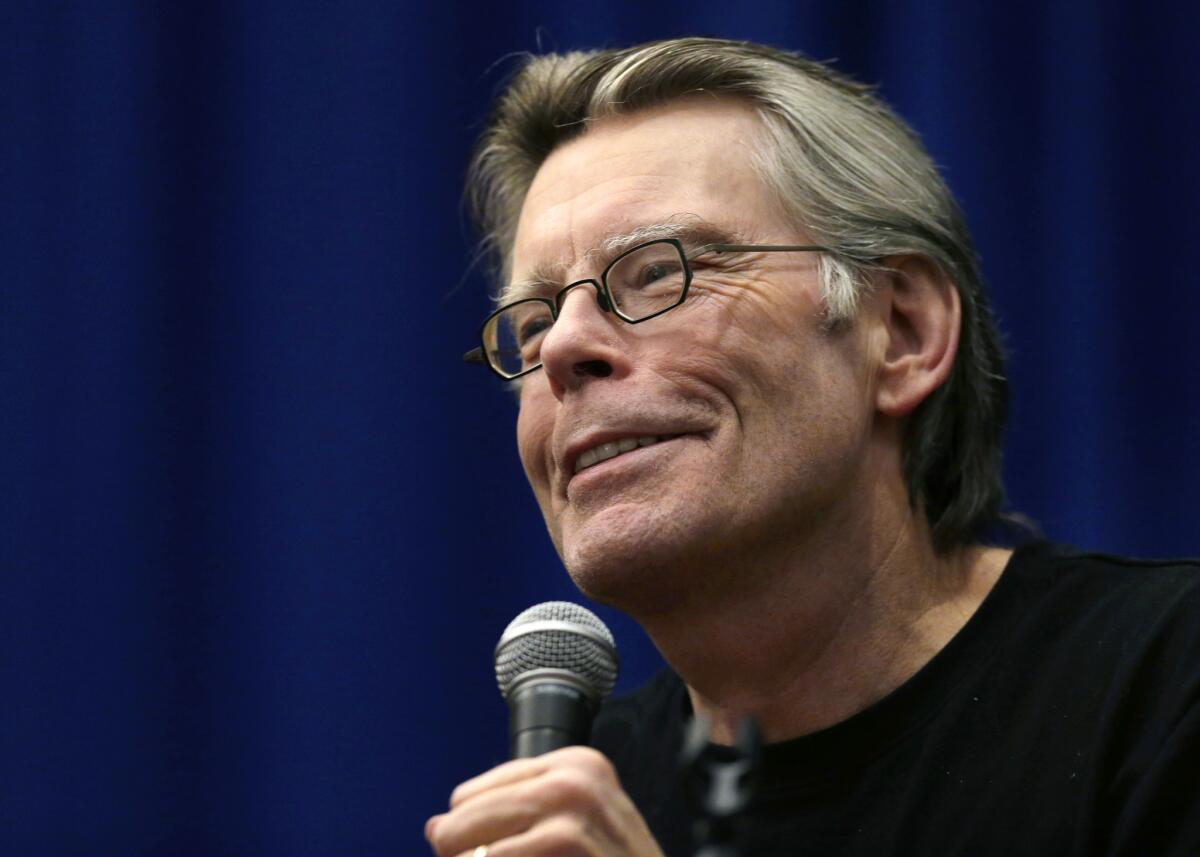Stephen King’s ‘Drunken Fireworks’ -- available only on audio

Stephen King speaks in 2012 to creative writing students at the University of Massachusetts-Lowell.
- Share via
Stephen King likes to play with delivery systems. In 1996, he wrote “The Green Mile” as a serial novel, publishing it in six monthly installments. Four years later, he issued “Riding the Bullet” as an early e-book, while in 2008, he debuted the story “N.” as a series of short web-only videos, posting 25 episodes over five weeks.
The point, of course, is that it is not form that matters so much as content, that we are narrative animals who look for stories anywhere we can.
King’s latest delivery experiment is the audiobook “Drunken Fireworks” (Simon & Schuster Audio: $14.99), a story that will appear in print later this year, as part of the collection “The Bazaar of Bad Dreams.” The audio version is being released for July 4; it involves a fireworks competition that goes horribly, if inevitably, wrong.
Narrated by a drinker named Alden McCausland, who lives with his mother beside a small lake in Maine, the story is framed, for the most part, as a deposition given to the police. Over three successive Independence Days, Alden and his mother engage in a so-called “arms race” with their neighbor Paul Massimo, a summer resident from Rhode Island who may or may not be connected to the mob.
Summer reading guide: The 136 books you’ll want to read
Given the design of the story, a spoken presentation makes sense. First, there is the matter of the deposition — but even more than that, King is after something of a tall tale. Narrated by Maine storyteller Tim Sample, the narrative moves, for the most part, by inflection: until the denouement, in other words, not much happens, which means the voice is an essential part of keeping us engaged.
And yet, in the end, this is the problem with “Drunken Fireworks” also, that there is not enough to hold us in its grasp. It’s a simple story, perhaps too much so, in which we can see the end from the beginning, and the only real surprise is in the details, the specifics of how the narrative plays out.
Sample’s voice is warm — although it takes some getting used to — but even that works to undermine the tension in its way. What I mean is that the offhand nature of his storytelling only serves to emphasize the anecdotal nature of the story, keeping us on the surface of a narrative that has very little movement underneath.
That’s too bad, because there’s something great about this idea, something vivid and compelling: a reminder of where literature begins. The earliest stories, after all, were fables, allegories, shared aloud, and there is something of the allegorical to “Drunken Fireworks,” as well.
Pride comes before a fall, perhaps. Or: Be careful what you wish for. Either way, though, there is not enough suspense here, like a July 4 fireworks exhibition that we’ve seen before.
Twitter: @davidulin
More to Read
Sign up for our Book Club newsletter
Get the latest news, events and more from the Los Angeles Times Book Club, and help us get L.A. reading and talking.
You may occasionally receive promotional content from the Los Angeles Times.







